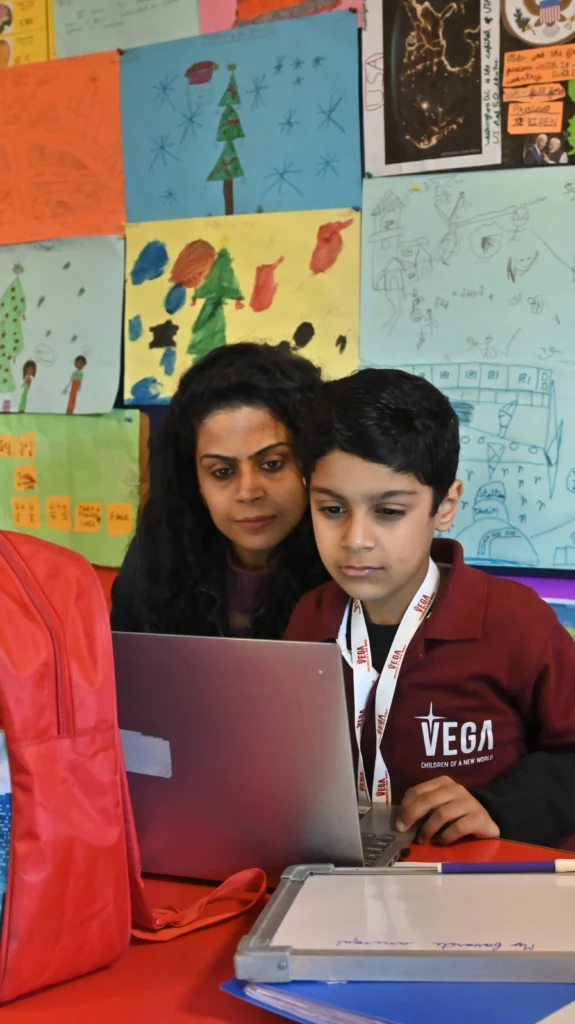Children are growing up surrounded by technology in the current digital world. Social media, video games, and online courses have all made screens a necessary component of everyday life. Overuse of technology can harm children’s behaviour, social development, and health, even while it offers information, amusement, and new opportunities.
In order to help children find a good balance between screen time and offline activities, parents are essential. Here are ten practical strategies for teaching kids to responsibly manage their screen use.
- Establish Reasonable Boundaries
Establish explicit guidelines about screen time for kids rather than allowing them to use gadgets whenever they wish. For instance, restrict entertainment use to one or two hours per day or only permit screens to be used after homework is finished. This guarantees that children won’t form bad scrolling habits.
2. Establish Tech-Free Zones
Set aside specific spaces, such as dining tables, bedrooms, and family get-togethers, where screens are not permitted. Because kids won’t go to sleep with electronics in their hands, these tech-free zones promote talks, better meal attention, and better sleep.
3. Maintain Equilibrium with Outdoor Activities
Promote outside play, including sports, cycling, and nature hikes. Children who participate in physical activities maintain their health, experience less stress, and grow in social skills. Additionally, playing outside offers them natural enjoyment, which lessens their reliance on technology.
4. Set an Example
Youngsters frequently imitate their parents. They’ll probably do the same if they see you glued to your phone all the time. Choose offline activities and put your gadget away during family time to demonstrate balance. The influence of this silent instruction is long-lasting.
5. Put Quality Screen Time First
Screen time in general is safe. Instead of merely using technology for passive enjoyment, encourage kids to use it for learning through educational applications, coding games, or documentaries. Good content can increase knowledge and creativity while minimising negative impacts.

6. Promote Offline Hobbies
Introduce them to pastimes like cooking, art, reading, and music. These exercises not only lessen reliance on screens but also encourage confidence and creativity. Children who engage in hobbies get tranquillity and a sense of accomplishment that technology cannot always offer.
7. Establish a Family Routine
Children who follow a well-planned regimen are certain to balance their screen time, hobbies, housework, play, and studies. They are less likely to squander hours on electronics when their days are organised. Children who follow routines are also more responsible and disciplined.
8. Instruct Students in Digital Responsibilities
Children’s screen time includes both the amount of time they spend online and how they utilise it. Emphasise to children the value of being kind online, the risks of excessive sharing, and safe internet usage. They develop into responsible digital citizens as a result.
9. Promote Restful Sleep Practices
Sleep cycles are disrupted by screens before bed. Make it a rule to switch off all electronics at least an hour before bed. Instead, establish peaceful bedtime routines like journaling, storytelling, or reading. Both mental and physical health are enhanced by getting enough sleep.
10. Reward Equitable Conduct
When your child complies with screen restrictions without prompting, give them praise. Simple incentives can encourage them to continue engaging in good behaviours, including as praise, an enjoyable outing, or more playtime. When it comes to fostering discipline, positive reinforcement is more effective than punishment.
Teaching kids how to use technology responsibly rather than removing them from it is the key to helping them manage their screen time. Parents can help their children lead balanced lives by establishing boundaries, developing offline activities, and encouraging outdoor play. Children can learn to embrace technology for growth while living fully in the real world, allowing them to experience the best of both worlds with time, patience, consistency, and effective communication.
Vega Schools offers holistic education to children in Delhi NCR and is rated among the top Schools in Gurgaon. Its modern infrastructure, facilities, and experienced teachers are a big asset to the learning & development of students, be it for Nursery, Primary or Senior children making Vega Schools the best schools in Gurgaon. For information about admission please visit the Vega Schools campuses in Sector 48 and Sector 76 Gurugram.
